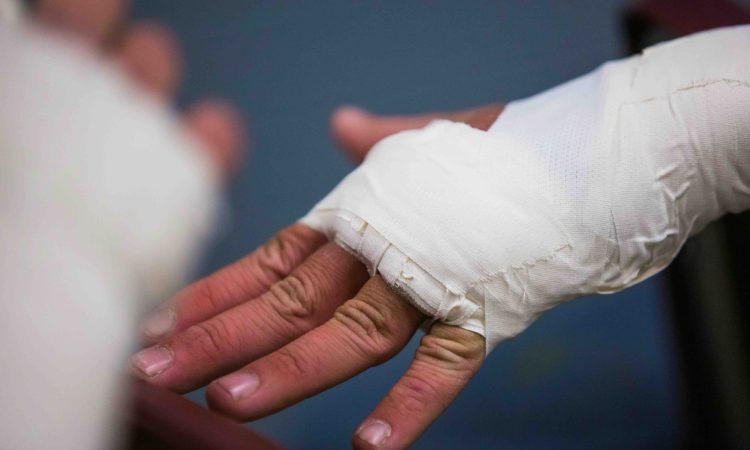
Defending Personal Injury Claims: The Importance of Honesty When Making a Claim
In a landmark case that has captured national attention, artist and model Kae Burnell-Chambers was sentenced to 26 weeks in prison for contempt of court after attempting to fraudulently claim £3 million from the NHS. This case underscores the critical importance of honesty and integrity in personal injury claims.
This case provides a useful lens through which to examine the processes, risks, and responsibilities inherent in pursuing personal injury claims in the UK. By exploring the legal framework, practical considerations, and lessons from this case, claimants and legal practitioners alike can better understand how to navigate this complex area of law safely and ethically.
Background of the Claim
In 2019, Burnell-Chambers initiated a clinical negligence claim against the Northern Lincolnshire and Goole NHS Foundation Trust. She alleged that a delayed diagnosis of cauda equina syndrome in 2016 led to severe and permanent disabilities, including the need for mobility aids, assistance with daily activities, and significant care requirements (to read more about Cauda Equina Syndrome and the severe effects it can cause, please use this link to find our article Link Cauda Equina Article). Her claim sought substantial compensation for future care costs, loss of earnings, and accommodation modifications.
However, the NHS Trust contested the claim, arguing that Burnell-Chambers had made a good recovery and that her symptoms were exaggerated. The Trust presented evidence that she had been participating in physically demanding activities, including body-painting conventions, which contradicted her assertions of severe disability.
Evidence of Fraudulent Activity
The Trust conducted surveillance and gathered evidence that revealed Burnell-Chambers engaging in activities inconsistent with her claimed disabilities. Video footage from the Kustom Kulture Blast Off festival in 2019 showed her walking unaided, posing, and dancing activities that would be challenging for someone with the severe impairments she described.
Additionally, social media posts and other public appearances depicted her as active and mobile, further undermining her claims. These revelations led to contempt proceedings, during which Burnell-Chambers admitted to deliberately exaggerating her symptoms to strengthen her case.
This case demonstrates the types of evidence courts may consider when investigating potential fraud:
- Video surveillance
- Photographic evidence
- Social media posts
- Witness testimony
- Medical examinations and reports
Even seemingly minor inconsistencies can be enough to undermine a claimant’s credibility and result in serious legal consequences.
Legal Proceedings and Sentencing
In July 2025, Burnell-Chambers pleaded guilty to contempt of court, acknowledging that she had intentionally misrepresented her condition to medical experts and fabricated evidence to support her claim. At her sentencing, Mrs Justice Tipples condemned her actions as a serious breach of trust and ordered her to pay £135,000 towards the NHS Trust’s legal costs.
The judge emphasized that the severity of the offence outweighed any mitigating factors, including Burnell-Chambers’ personal circumstances. While her legal team argued for a suspended sentence due to the potential impact on her son, the court determined that immediate custody was necessary to uphold the integrity of the legal system. This sentencing demonstrates that courts take fraudulent claims very seriously, regardless of personal circumstances.
The Wider Implications for Claimants
The Burnell-Chambers case highlights important lessons for anyone considering a personal injury claim:
Honesty is Essential: Even minor exaggerations can destroy credibility. Legal professionals advise complete transparency from the outset.
Social Media Awareness: Courts and insurers may review public social media profiles. Posts that contradict claims of disability or incapacity can be used as evidence.
Full Documentation: Claimants must provide accurate medical records and truthful accounts of injuries. Incomplete or misleading documentation can lead to dismissal or criminal charges.
Professional Advice: Working with experienced personal injury solicitors ensures claimants understand what evidence is required and how to present it honestly.
The Importance of Honesty and Social Media Awareness
This case also highlights the growing role of social media in personal injury claims. Even seemingly innocent posts, photos, or videos can be used as evidence and have the potential to undermine a claimant’s credibility. Honesty is the best policy, even minor exaggerations of symptoms or capabilities can jeopardise an entire claim. Claimants should be aware that courts and insurers have access to public online content, and any inconsistencies can lead to claims being reduced, dismissed, or, in severe cases such the Burnell-Chambers case, criminal proceedings. Maintaining transparency and providing accurate information throughout the claims process is essential to achieving a fair and successful outcome.
Social media has become a double-edged sword in personal injury litigation. While platforms like Instagram, Facebook, and TikTok allow claimants to share their lives, posts can be scrutinised by insurers and the courts. Even casual photos or videos can contradict a claimant’s statements, potentially leading to claims being reduced, dismissed, or, in extreme cases, criminal proceedings.
Claimants should consider:
- Avoiding posts that could be misinterpreted as inconsistent with reported injuries
- Maintaining privacy settings while the claim is active
- Consulting with their solicitor before posting content that could relate to their claim
The conviction of Kae Burnell-Chambers serves as a stark reminder that honesty is the cornerstone of any personal injury claim. Claimants must provide truthful accounts, accurate medical records, and a realistic depiction of their injuries.
At Hopkins Solicitors, we are committed to guiding claimants through the personal injury process with professionalism, integrity, and clear legal advice, ensuring that legitimate claims are handled fairly while deterring dishonest practices.
If you believe that you have fallen victim to clinical negligence and would like to explore making a claim, get into contact with our experienced Personal Injury team today.
Request a CallbackRelated Articles
-

The Importance of Financial Remedy Orders in Divorce
Divorce is tough, but what comes after can be even tougher if you don’t protect yourself financially. Many people think…
-

New Year, New Start (Leaving a Domestically Abusive Relationship)
For many, the New Year often signals a new start. Sometimes people decide it is time to leave a relationship…
-

Defendant Personal Injury Claims: A Detailed Guide on the Process, Costs, PAD Applications, and How to Protect Your Business
At Hopkins Solicitors, our Personal Injury team frequently advises businesses, organisations, and individuals who are facing claims made against them….